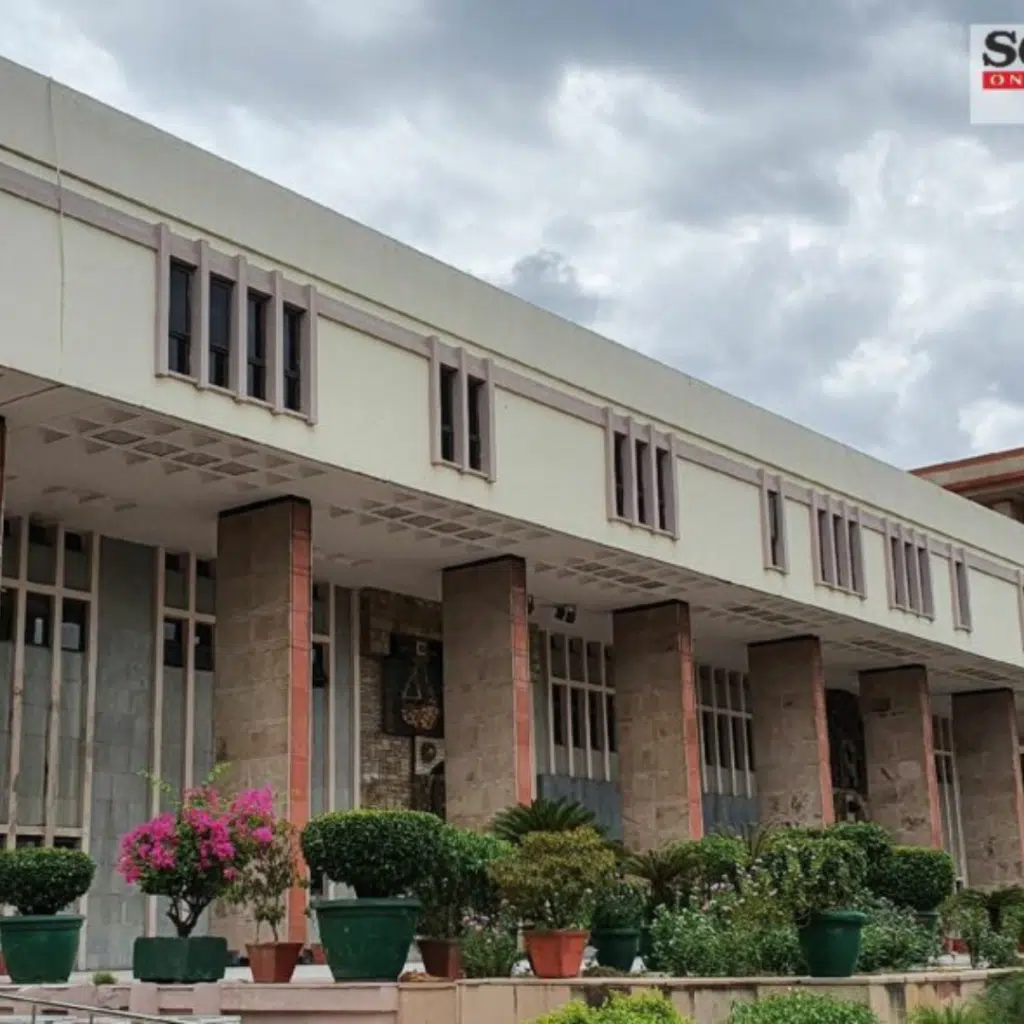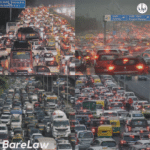
The Delhi Waqf Board Case: Unveiling the Layers of Legal and Political Drama
Table of Contents
Introduction
The Delhi Waqf Board has been thrust into the spotlight, not for its charitable activities or governance but due to allegations of corruption that have ensnared Aam Aadmi Party (AAP) MLA Amanatullah Khan. This case has not only legal implications but also shakes the political landscape, casting a shadow over Khan’s career and the AAP’s image.
The Enforcement Directorate’s Involvement
The Enforcement Directorate (ED), a key player in India’s fight against financial crimes, has summoned Amanatullah Khan, escalating the seriousness of the allegations. The ED’s involvement signifies the case’s potential links to money laundering and financial irregularities, extending beyond mere administrative lapses.
Legal Proceedings and High Court’s Stance
The legal battle has taken center stage at the Delhi High Court, which recently refused to stay the summons issued to Khan. This decision marks a significant moment in the case, highlighting the judiciary’s cautious approach in matters involving allegations of corruption and money laundering.
The Anti-Corruption Bureau’s FIR
Central to this controversy is the FIR filed by the Anti-Corruption Bureau (ACB), which accuses Khan of irregularities in recruitment during his tenure as the Chairman of the Delhi Waqf Board. This FIR is not just a document but a Pandora’s box, revealing the complexities of governance and the thin line between discretion and impropriety.
The Prevention of Money Laundering Act (PMLA)
Khan’s challenge to the validity of Section 50 of the PMLA brings into question the legal frameworks governing financial investigations in India. This challenge is not merely a legal defense but a critique of the powers vested in investigative agencies and their potential for misuse.
The Alleged Irregularities in Delhi Waqf Board Recruitment
At the heart of the case are the alleged recruitment irregularities. These allegations question the integrity of the recruitment process and the accountability mechanisms within public institutions.
The Concept of Harassment and Persecution Claims
Khan alleges that the case against him is a “classic case of harassment and persecution.” This claim sheds light on the broader issue of the use of legal proceedings as tools for political rivalry and raises concerns about the protection of rights and freedoms.
Role of the Central Bureau of Investigation (CBI)
The involvement of the CBI and its findings that there was no exchange of money in the alleged transactions adds a layer of complexity to the case, challenging the narrative of financial misconduct.
Financial Transactions and Money Laundering Allegations
The allegations of money laundering are particularly damning, suggesting a deliberate attempt to obscure the illegal flow of funds. Khan’s defense that no proceeds of crime have been identified challenges the foundational basis of the money laundering charges.
Public and Political Reaction to the Case
The case has sparked a wide range of reactions from the public and political figures alike. It serves as a litmus test for the AAP’s commitment to transparency and accountability, influencing public opinion and voter trust.
Legal Defenses and Strategies
Khan’s legal strategy and the defenses he employs will be pivotal in determining the outcome of this case. The legal arguments made could set precedents for future cases involving allegations of corruption and money laundering.
Impact on Governance and Public Trust
The implications of this case extend beyond the individuals involved, affecting the functioning of the Delhi Waqf Board and public trust in government institutions. It highlights the need for robust mechanisms to ensure transparency and accountability in public offices.
Comparative Analysis with Similar Cases
By comparing this case with similar instances of alleged corruption, we can glean insights into the patterns of legal battles, defense strategies, and the outcomes of such high-profile cases.
Future of Anti-Corruption Efforts in India
This case is a critical juncture for India’s anti-corruption efforts, highlighting both the strengths and weaknesses of the current legal and institutional frameworks. It prompts a reevaluation of anti-corruption strategies, potentially leading to reforms aimed at enhancing transparency, accountability, and the efficacy of the legal system in combating corruption. The outcome of this case could serve as a catalyst for significant policy changes and a renewed commitment to upholding the principles of good governance.
Amanatullah Khan’s Political Career and Legacy
The implications of this case for Amanatullah Khan’s political career are profound. Beyond the immediate legal challenges, the case poses questions about his legacy and the impact on his future political aspirations. It underscores the delicate balance politicians must maintain between their roles as public servants and the scrutiny they face, shaping the narrative of their contributions and the public’s perception of their integrity.
FAQs
What are the main allegations against Amanatullah Khan in the Delhi Waqf Board case? The primary allegations revolve around irregularities in recruitment processes and potential financial improprieties during Khan’s tenure as the Chairman of the Delhi Waqf Board.
What is the role of the Enforcement Directorate in this case? The Enforcement Directorate is investigating potential money laundering aspects related to the alleged irregularities in the Delhi Waqf Board under Khan’s chairmanship.
How has the Delhi High Court responded to the case so far? The Delhi High Court has refused to stay the summons issued to Amanatullah Khan by the ED and adjourned the case, indicating a careful and measured approach to the legal proceedings.
What is Section 50 of the Prevention of Money Laundering Act, and why is it significant in this case? Section 50 of the PMLA empowers the authorities to summon individuals, require the production of documents, and give evidence during investigations. Khan has challenged the validity of this section, questioning the broad powers it grants to the ED.
What implications does this case have for Amanatullah Khan’s political career? The case could have significant implications for Khan’s political career, potentially affecting his public image, political influence, and future aspirations within the AAP and beyond.
How does this case impact anti-corruption efforts in India? This case highlights the challenges and complexities of anti-corruption efforts in India, potentially influencing future legal reforms, enforcement strategies, and public attitudes towards corruption and governance.
Barelaw, an online platform dedicated to delivering comprehensive legal knowledge, proudly presents its exclusive category of case briefs. This section is meticulously crafted to offer insightful analyses of landmark judgments, providing a valuable resource for legal professionals, students, and anyone interested in understanding the intricacies of law. Our case briefs delve deep into pivotal court decisions, exploring the rationale behind each judgment and its impact on the legal landscape.
We understand that navigating the complexities of legal judgments can be challenging. That’s why our case briefs are designed to be both informative and accessible, ensuring that readers gain a clear understanding of the key legal principles involved. Each brief includes a summary of the facts, the legal issue at hand, the court’s reasoning, and the ultimate decision. This structured approach makes it easier for our audience to grasp the nuances of each case.
Our website is a treasure trove of legal wisdom, constantly updated with the latest and most significant cases. Whether you’re a law student seeking to enhance your knowledge, a practicing attorney looking for a quick reference, or simply a curious mind eager to understand the law’s evolution, Barelaw is your go-to destination.
Explore our case briefs and immerse yourself in the world of law. Visit our website now and discover the wealth of legal knowledge at your fingertips. The link is provided below for your convenience and direct access to our expansive legal database
You can access more legal drafts here – https://www.barelaw.in/legal-drafts/



